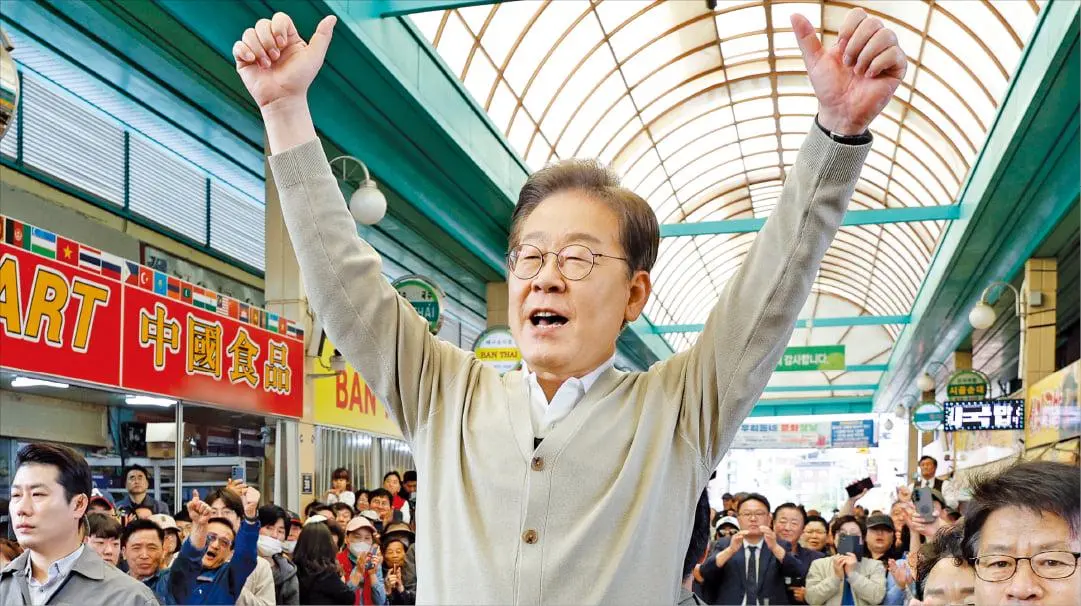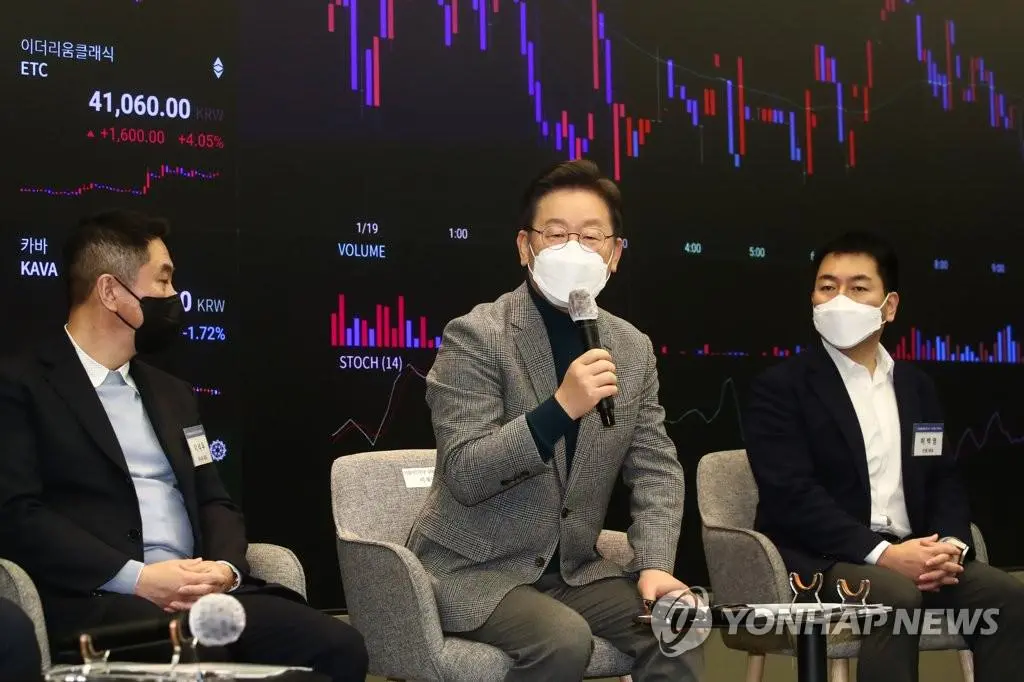作者:Zen,PANews

从出身贫寒到获选总统,李在明成为韩国民众心中的励志人物。6月4日,韩国选举管理委员会宣布,第21届总统选举计票工作当天全部结束,结果显示,李在明以49.42%的得票率当选新总统。其得票数为1728.7513万张,创历届大选之最。李在明也在4日就开始上岗,将总统府搬回青瓦台。
值得注意的是,在本次韩国总统选举战中,加密货币政策首次成为各党候选人的热门议题。为了争取年轻人和中产阶级的选票,作为选举热门的共同民主党候选人李在明和国民力量党候选人金文洙均提出了积极、进步性的加密资产政策承诺。
在施政承诺书中,李在明将虚拟资产作为“公平经济”的一环进行论述。他表示,上任后将以“让韩国成为数字资产中心”为主题,为培育虚拟资产产业奠定基础。
“亲“加密资产的李在明
在通过加密资产为自己募资和拉拢人气方面,李在明实际上是美国总统特朗普的“前辈”。
早在2022年与尹锡悦角逐总统之位时,李在明就展现出对加密资产的积极态度,并被解读有意拉拢加密货币为主的年轻选民群体。他还通过发行NFT(非同质化代币)筹集竞选资金,成为全球首位采用此方式的总统候选人。当时他在提及加密货币行业时曾表示:“即使我们被蒙蔽了双眼,现有的市场也不会消失。如果我们无法回避,就必须抢占先机。”
“我将积极支持数字资产生态系统的建立,包括创造性的数字资产发行、安全的交易和存储、间接投资以及通过保险分散投资风险等。”2022年1月,李在明参加四大虚拟资产交易所代表及专家会议,并发表了将在制度上认可虚拟资产事业,保障各种事业机会的承诺。
李在明指出,在采取足够的保障措施保护投资者并防止市场混乱之后,他还将考虑允许首次代币发行(ICO)。“ICO禁令不是法律,而是司法部单方面采取的措施,”他进一步表示:“如果我们有一个确保稳定的系统,那么在颁布许可法律之前就有可能实现这一目标”。

李在明还曾公开表示:“过去民主党政府对虚拟资产采取否定态度,甚至试图将其排除在金融体系之外,这本身就是一种妨碍市场正常发展的错误决策。”“我作为民主党议员表示歉意”。此外,李在明还宣布将审查允许在虚拟资产中发行基于实体资产的证券化代币(STO)以及提高加密货币投资收益的免税门槛。
随着世界各国对加密货币监管与合规政策落地,在本次选举中,李在明大幅扩展了其对虚拟资产各类别的政策主张,其倡导的加密政策大体上也更加具体。
推动现货ETF与稳定币
“我将创造一个安全的投资环境,让年轻人能够积累资产,规划未来。”2025年5月6日,李在明在社交网络上承诺将支持年轻人资产增值。他明确许诺要将虚拟资产现货ETF制度化,并构建一体化监管体系。
2025年5月13日,韩国民主党成立数字资产委员会,致力于制定加密货币政策和促进行业发展。该委员会在首尔国会议员大厅举行了首次会议,强调了解决监管不确定性和解决稳定币监管等问题的重要性,其首要任务之一是制定《数字资产基本法》,为加密资产和稳定币建立法律框架。该委员会计划未来探讨涵盖稳定币、NFT、证券型代币发行(STO)等全方位虚拟资产相关制度安排的方向。
此外,李在明表示支持发行韩元锚定稳定币,主张建立以韩元计价的稳定币市场,以减少外币稳定币(如USDT、USDC)带来的资本外流问题。韩国前期监管禁止本土稳定币发行,导致交易所依赖美元稳定币;李在明认为应该“发行与韩元挂钩的稳定币,防止国民财富外流”。而对未能加快进入稳定币市场的政策,李在明将其比作“朝鲜王朝末期的闭关锁国。
允许国家养老基金和政府机构投资加密资产
在机构投资方面,李在明支持扩大公共资金对加密资产的配置。他提议允许国家养老基金和其他政府机构在符合稳定性标准后投资加密货币。
其竞选委员会下属的数字资产委员会曾在上个月发表声明称:“宣布国民年金公团等养老金投资数字资产,并非投机性投资,而是符合国际优化模型、经过管控且科学的多元化投资策略。”该委员会还补充道,因情绪厌恶而放弃数字资产,才是落后于全球金融流动、丧失货币主权、错失国家资产增长机遇的现实风险。
“与国民年金公团投资加密货币是无稽之谈相反,国民年金公团已经在投资与数字资产间接挂钩的资产”,“投资数字资产并非鲁莽的赌注,而是忠于传统理论的投资策略的一部分”。数字资产委员会计划建立一套系统,使国民年金公团能够超越目前对虚拟资产的间接投资,进行直接投资。在将虚拟资产纳入系统以确保稳定性之后,国民年金公团将继续完善立法和监管体系,建立符合国内外法规的投资流程。
放宽交易所与银行合作,降低加密税金
李在明对加密交易所的监管着重于引入政府主导的整顿机制。他提出建立综合监测系统,集中监管各大交易平台,并由政府引导降低市场交易费用。
当前韩国施行的“1交易所-1银行”规则限制每家加密交易所只能与一家银行合作提供韩元出入金服务,此规则最初是为防止洗钱而设。李在明的对手、执政党人士已经提出废除该规则,使交易所可与多家银行合作。
虽然李在明本人未明确表态,但其团队强调加快立法进入第二阶段,将现有三驾马车(金融监管、反洗钱、税务)框架下的交易所监管进一步完善。这一系列政策暗示他倾向于放宽交易所管制、提升市场竞争力,而前任政府则更注重防范风险和合规要求。
在税收方面,李在明所属的民主党提出逐步落实加密资产交易税,但大幅提高可扣除的免税额。根据韩联社报道,民主党计划在2024年如期征收虚拟资产所得税,但将个人交易收益的扣除上限从目前的250万韩元提高到5000万韩元,以减轻普通投资者尤其年轻人的税负压力。
韩联社指出,党内对加密税率延迟与否存在争议,但提高免税额是共识。相比之下,2022年执政的尹锡悦政府最初要求2023年开始对虚拟币收益税率20%征税(超过年收益250万韩元部分)。李在明的做法实际上是承认加密交易的普遍性,降低过于严苛的税务壁垒,使政府在征税的同时给出更多激励空间,帮助市场健康发展。
结语
李在明的胜选不仅代表着韩国政治格局的转变,也预示着国家对加密资产政策方向或将迎来重大变化。从“拥抱监管”到“培育产业”,从制度建设到资本市场接轨,他的“加密新政”已初现轮廓。
在全球多个国家加强加密货币合规监管的背景下,韩国是否能凭借这一轮政策变革实现“数字资产中心”的目标,值得市场持续关注。
免责声明:本文章仅代表作者个人观点,不代表本平台的立场和观点。本文章仅供信息分享,不构成对任何人的任何投资建议。用户与作者之间的任何争议,与本平台无关。如网页中刊载的文章或图片涉及侵权,请提供相关的权利证明和身份证明发送邮件到support@aicoin.com,本平台相关工作人员将会进行核查。




